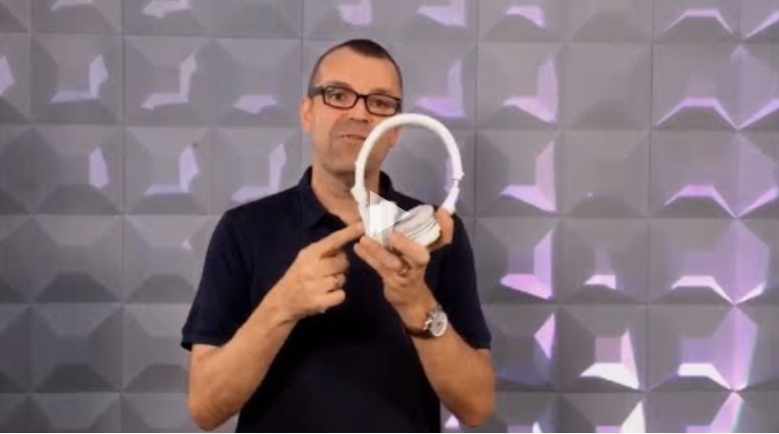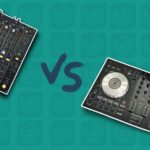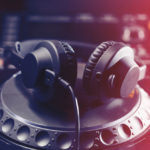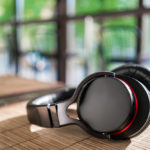What Do DJ Headphones Have That Our Standard Cans Lack?
If you’ve only just begun your DJing journey, you perhaps haven’t thought all that much about the difference between DJ and “normal” headphones, and that’s perfectly fine.
At this exciting and explorative stage of your DJ career, it’s nothing you need to worry about, but once you’ve refined your craft, and you’re ready to start booking some shows, it’s time to consider investing in a new pair of specialized cans.
The line between DJ and normal headphones blurs a little at the top end of the market, but no matter how good a pair of standard headphones are, they’ll never compare to the function and fit of their pro-grade DJ-optimized counterparts.
In this article, I’m going to be discussing why this is, and if DJ headphones are an essential part of the craft or something you can get by without. Let’s get to it!
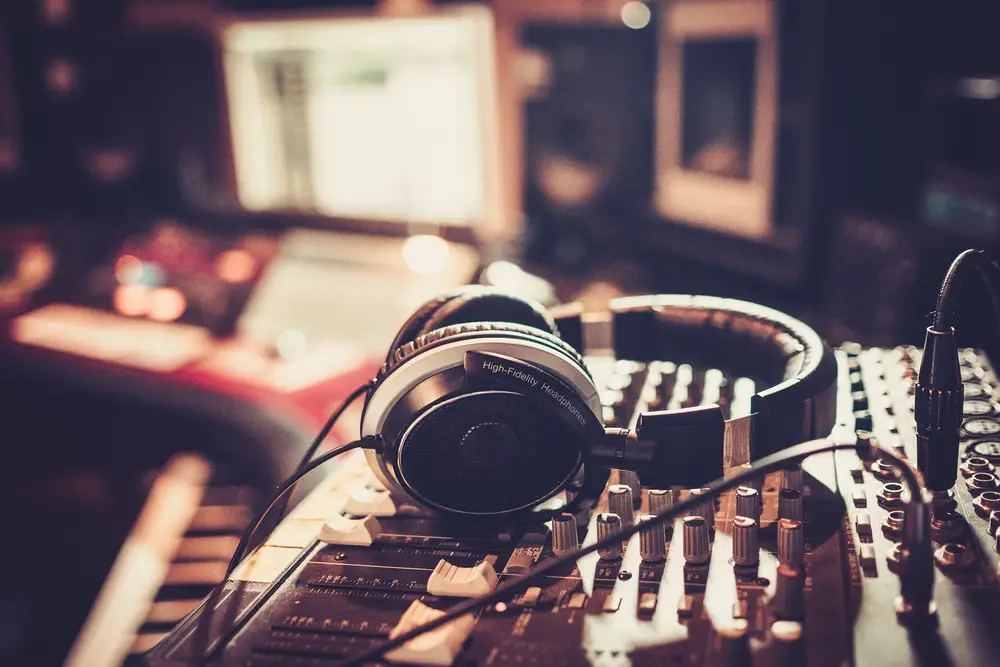
What’s So Special About DJ Headphones?
You may be wondering how a pair of headphones can be “DJ-optimized”, and that’s a good question. When we first think about it, it can be hard to put our finger on what sort of extras could make our lives behind the deck any easier.
However, as you continue your DJ-ourney (as I like to call it), the shortcomings of standard headphones will become all too apparent. Here’s what a proper pair of DJ headphones can bring to the table.
Swiveling Cups
You’ll have noticed when watching other DJs perform that their headphones are all over the place.
In one moment they’re on both their ears, then next they’re holding one cup to an ear while the other rests on their shoulder, and a second later, they’re wearing one cup, while the other sits somewhere near the back of their head.
As I’m sure you’re aware, this is because DJs have to listen to numerous sound sources during a performance. There’s the monitor, headphones, and possibly even the audience.
Swiveling ear cups provide the flexibility for us to shift and wear our headphones in a variety of ways without breaking them or causing ourselves any unnecessary discomfort.
How Do Normal Headphones Compare?
Some normal headphones may well have swiveling cups, but they rarely have the same freedom of movement as those on headphones developed by DJ brands for DJs.
Dual Signal Capabilities
Okay, this is a biggie! One of the key missions of a DJ is to layer tracks and create seamless transitions from one to the next, so people never have to stop dancing or whether even a second’s silence.
This silky smooth song-to-song shift is achieved by a process known as beat matching, in which a DJ listens to two tracks at once, so they can line the beats up perfectly before fading in the second track.
DJ headphones facilitate seamless beat matching by feeding us two separate audio signals. The original beat goes through one ear cup, while the new beat goes through the other.
Hearing both tracks through the headphones, we can align our beats in a flash, and fade in the new track to keep the party bouncing.
How Do Normal Headphones Compare?
With a regular set of headphones, you’d have to have one ear on the monitor and one ear in your cup to match a beat, and being that the levels and sound of these audio devices will be slightly different, it can be quite tricky.
Durability
As we’ve already touched upon, we give our headphones quite a bit of abuse during our set and let’s face it, clubs aren’t exactly the safest environment for expensive music gear. Our headphones are going to get stood on, sat on, spilled on, dropped, thrown… the works.
They need to be highly flexible and made with top quality materials, otherwise, they wouldn’t last a week in our line of work.
How Do Normal Headphones Compare?
Some normal headphones are pretty well-made, but they’re still designed with the expectation that you’ll care for them and keep them safe. DJ headphones, on the other hand, are designed by people who know that their product will never be safe.
Closed Back Cups
Closed-back cups provide the best possible noise cancellation, ensuring that when you’ve got your cans on, all you can hear is the music, no matter how loud the club gets.
How Do Normal Headphones Compare?
All DJ headphones have closed-back cups, but not all headphones with closed-back cups are DJ headphones.
Regular headphones with closed-back cups will have fantastic sound-canceling properties, yet, in the absence of all these other features, they’re not ideal for what we do.
Audio Quality And Driver Size
DJ headphones need to provide ultimate audio clarity, so the drivers tend to be quite a bit larger than those found in standard headphones.
How Do Normal Headphones Compare?
There is a definite overlap in DJ and normal headphones at certain points in the market in terms of audio quality.
For example, a $300 pair of casual listening headphones will certainly sound better than a $90 pair of DJ headphones, but on a level playing field, DJ headphones will almost always sound better.
Cables
The last major difference between DJ and normal headphones is the cabling. One thing to know right off the bat is that wireless headphones are not an option for DJing, as Bluetooth latency issues make beatmatching impossible.
If you want to hear more on this topic, feel free to skip on over to my article, Can I DJ with Bluetooth Headphones?
Secondly, DJ headphones only ever have a single cable input, to prevent them from getting caught on anything as you manhandle them throughout your set.
And finally, The cables of DJ headphones are almost always detachable, so they can be replaced when they inevitably break, saving you the hassle of sending your headphones off for repairs or having to buy new ones.
How Do Normal Headphones Compare?
Normal headphones can have cables coming out all over the place from both ear cups, which is a definite drawback when it comes to performing live.
I’m In The Market For Some DJ Headphones. What Should I Buy?
These Pioneer HDJ-X5-K Professional DJ Headphones are the ultimate entry-level DJ headphones. They feature most of the functionality we’ve discussed in this article, and you can pick them up for an absolute steal.
If you’ve got a little more give in your budget, you should consider these Sennheiser Pro Audio HD 25 DJ Headphones.
They’re super lightweight, unbelievably comfortable, and their ability to handle incredibly juiced sound pressure levels has earned them legendary status in the industry. I wouldn’t be surprised if every single one of your favorite DJs has used them in the past.
However, if you want to skip straight into the intermediate+ range, I can’t speak highly enough of these Pioneer HDJ-X10-K Professional DJ Headphones.
They have a jaw-dropping frequency range, a nano-coating that protects them from sweat and spilled drinks, pristine audio clarity, and they’re probably the most comfortable headphones you’ll ever wear.
DJ Headphones Vs Normal — Summing Up
There you have it — DJ headphones are superior to normal headphones for DJing… who’d have thunk, ay? But that’s not to say “normal” or studio headphones are bad.
There are some truly astounding products in both markets, but we’re always going to choose headphones that are optimized for our craft over those that aren’t — it’s a no-brainer!
We hope you love the products we recommend. We may collect a commission if you purchase through one of our links. This doesn't cost you anything extra. If you do, thank you! As an Amazon Associate, I earn from qualifying purchases.

